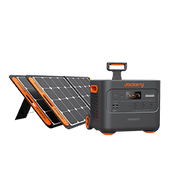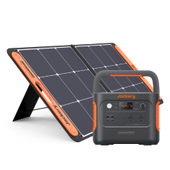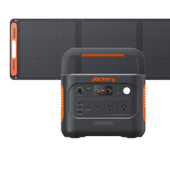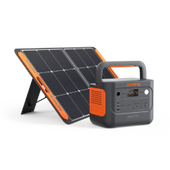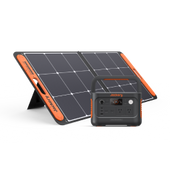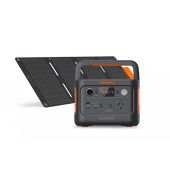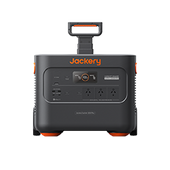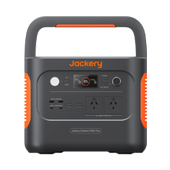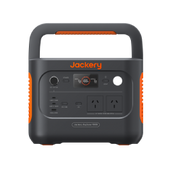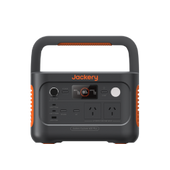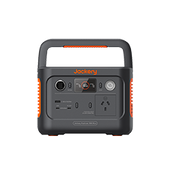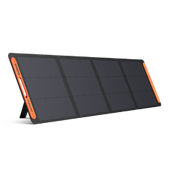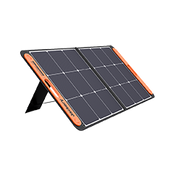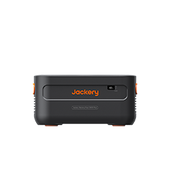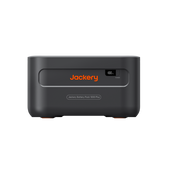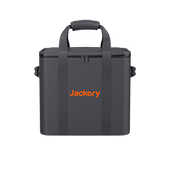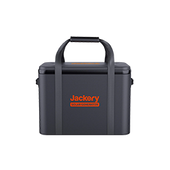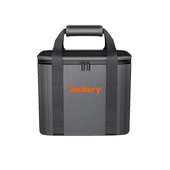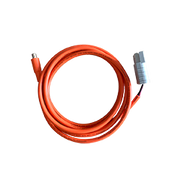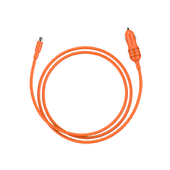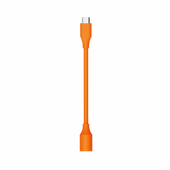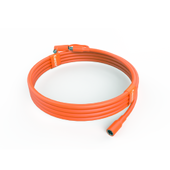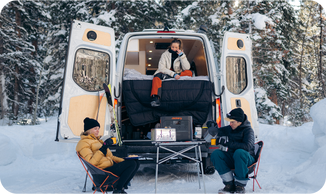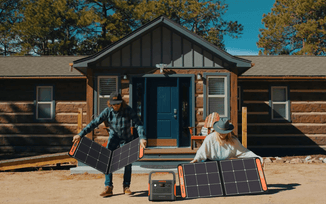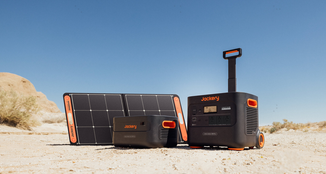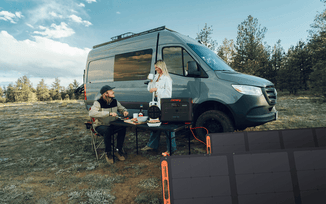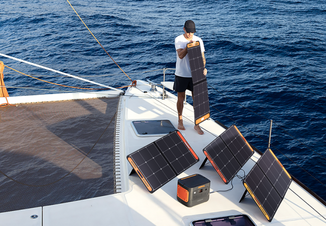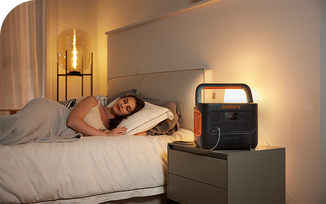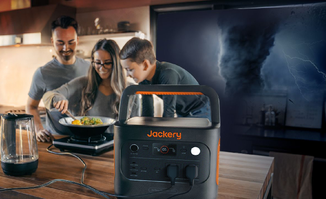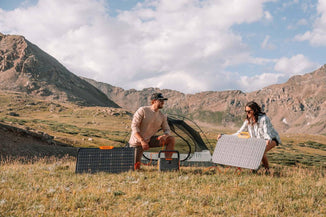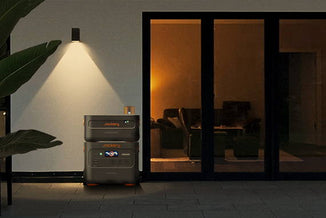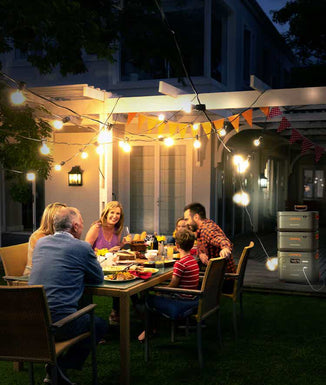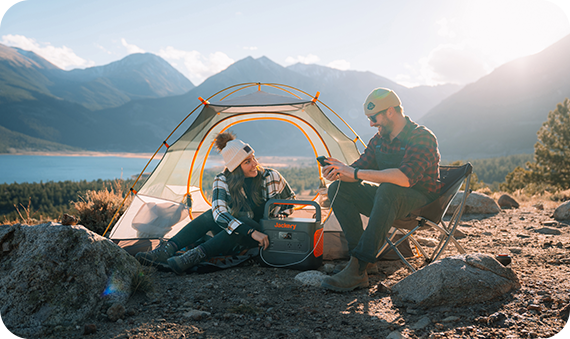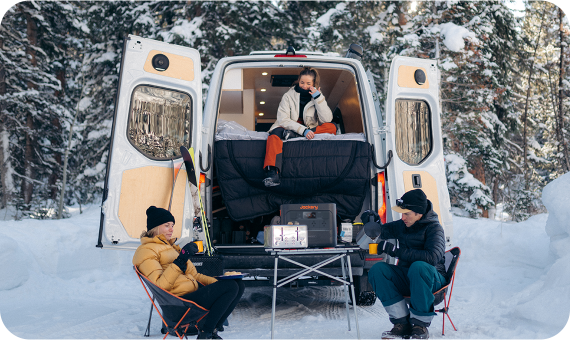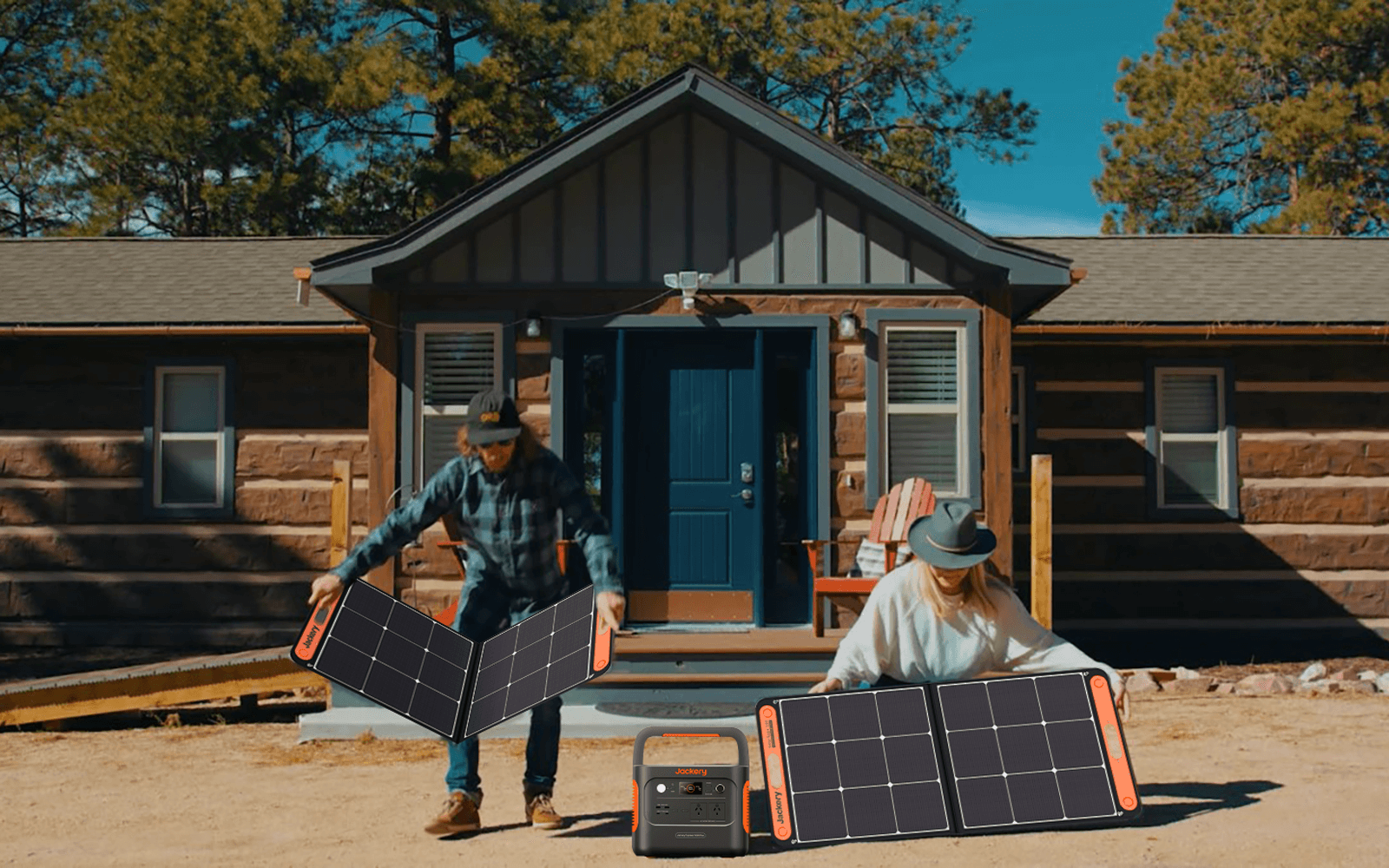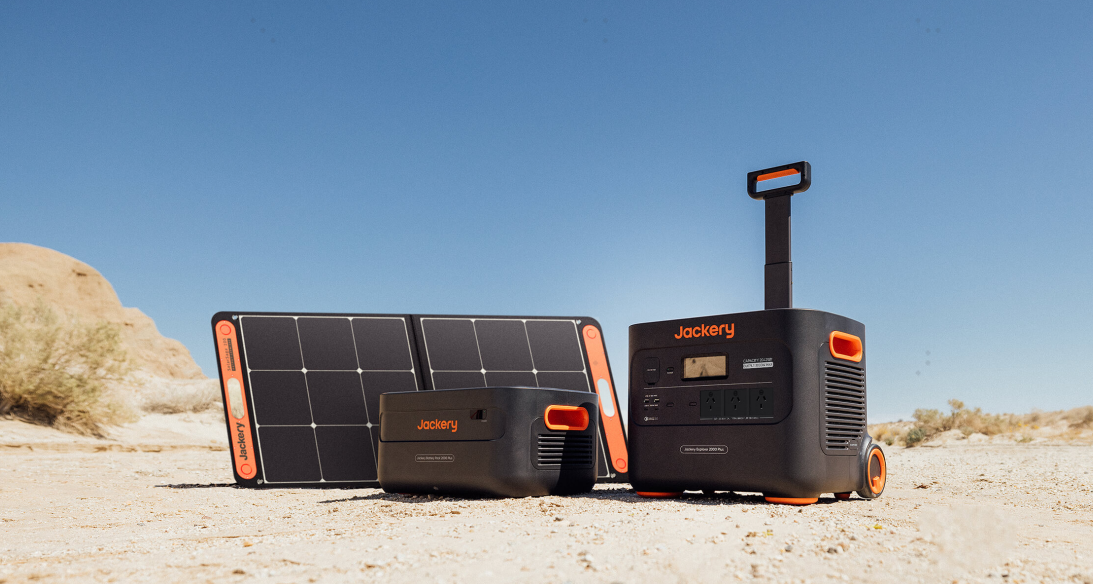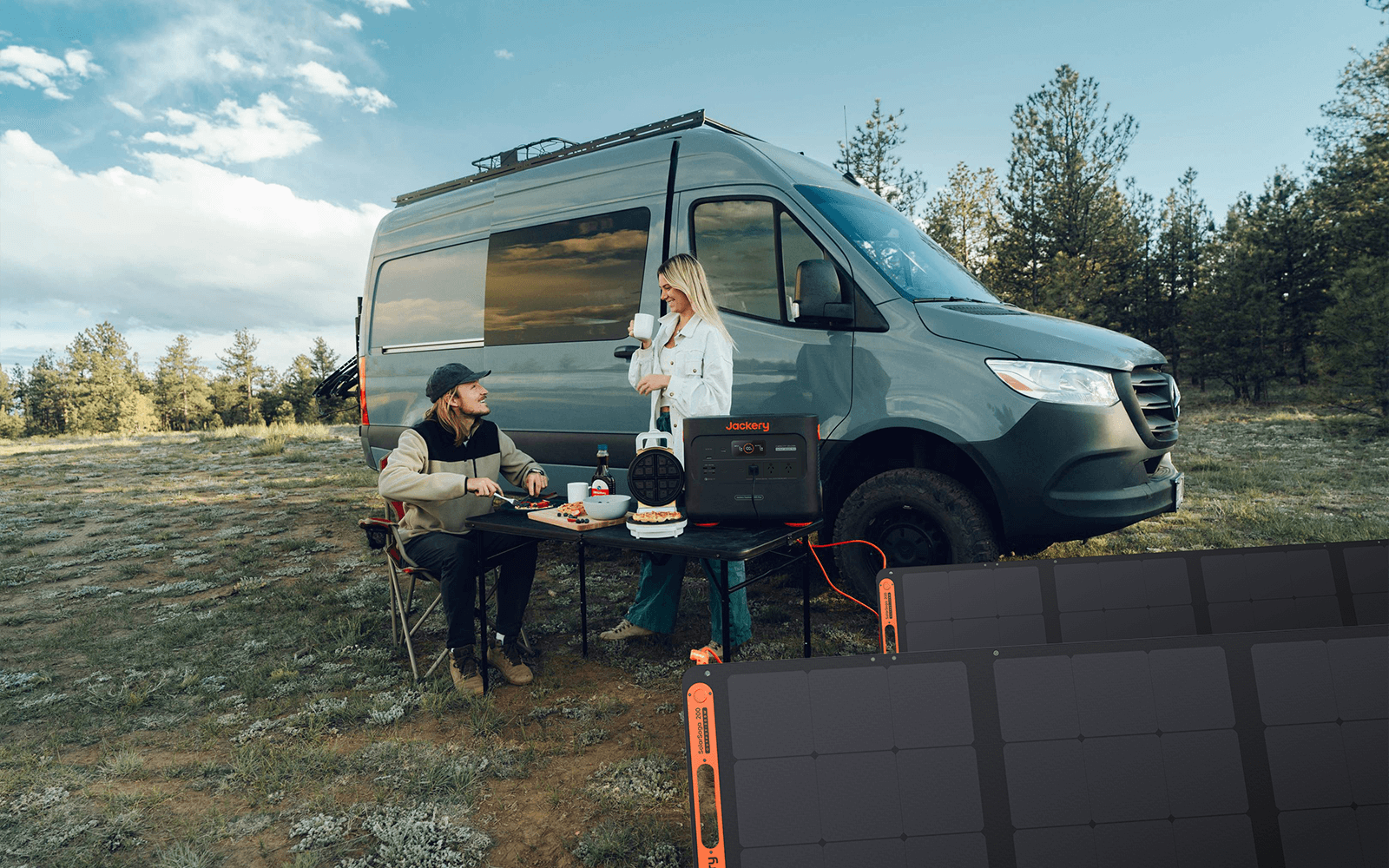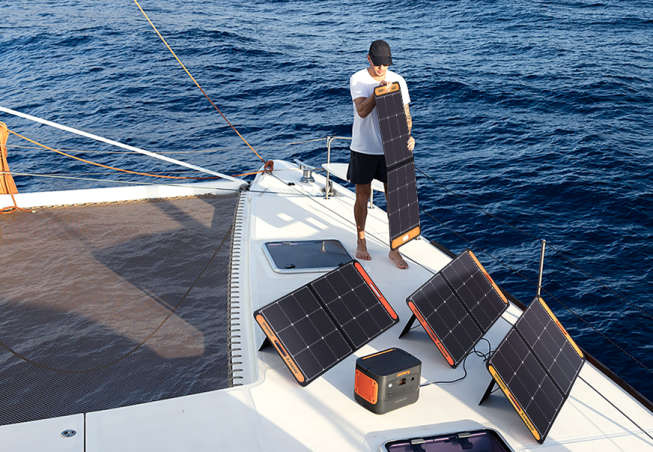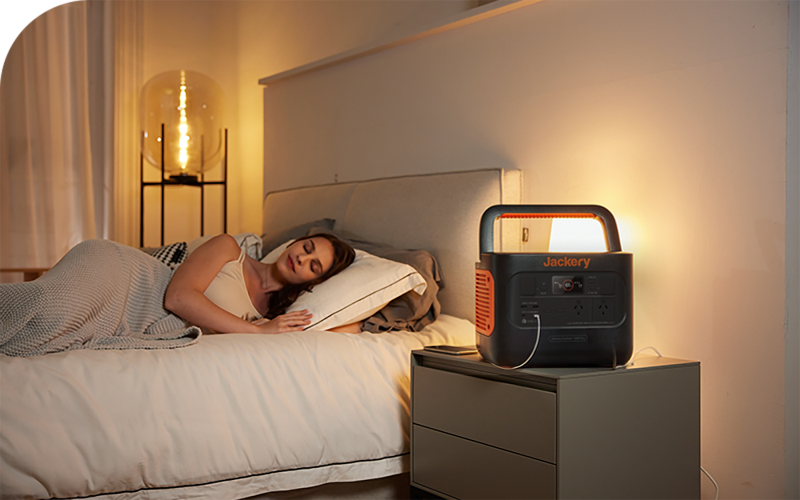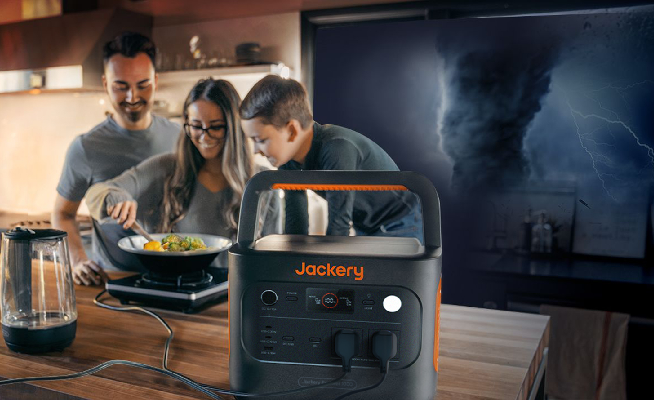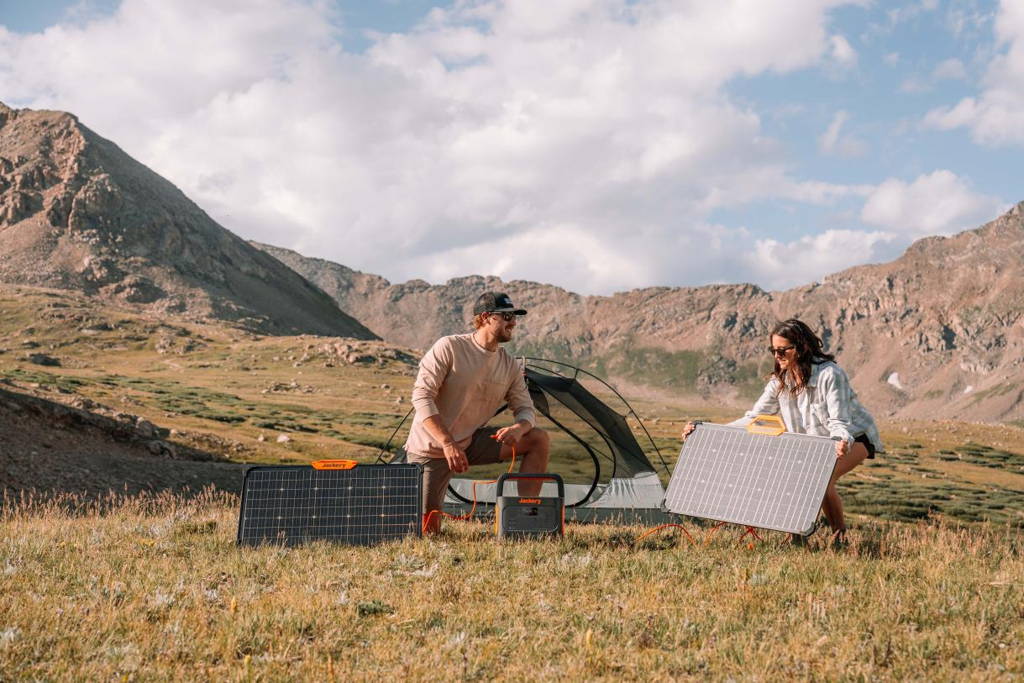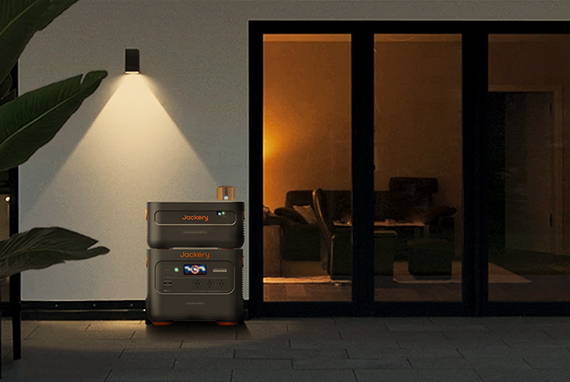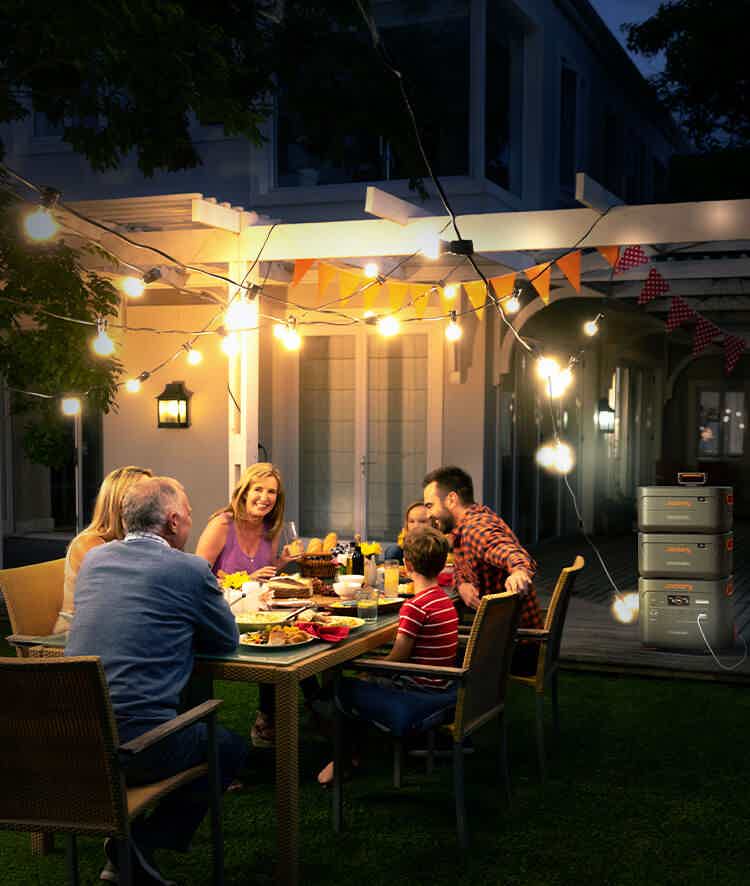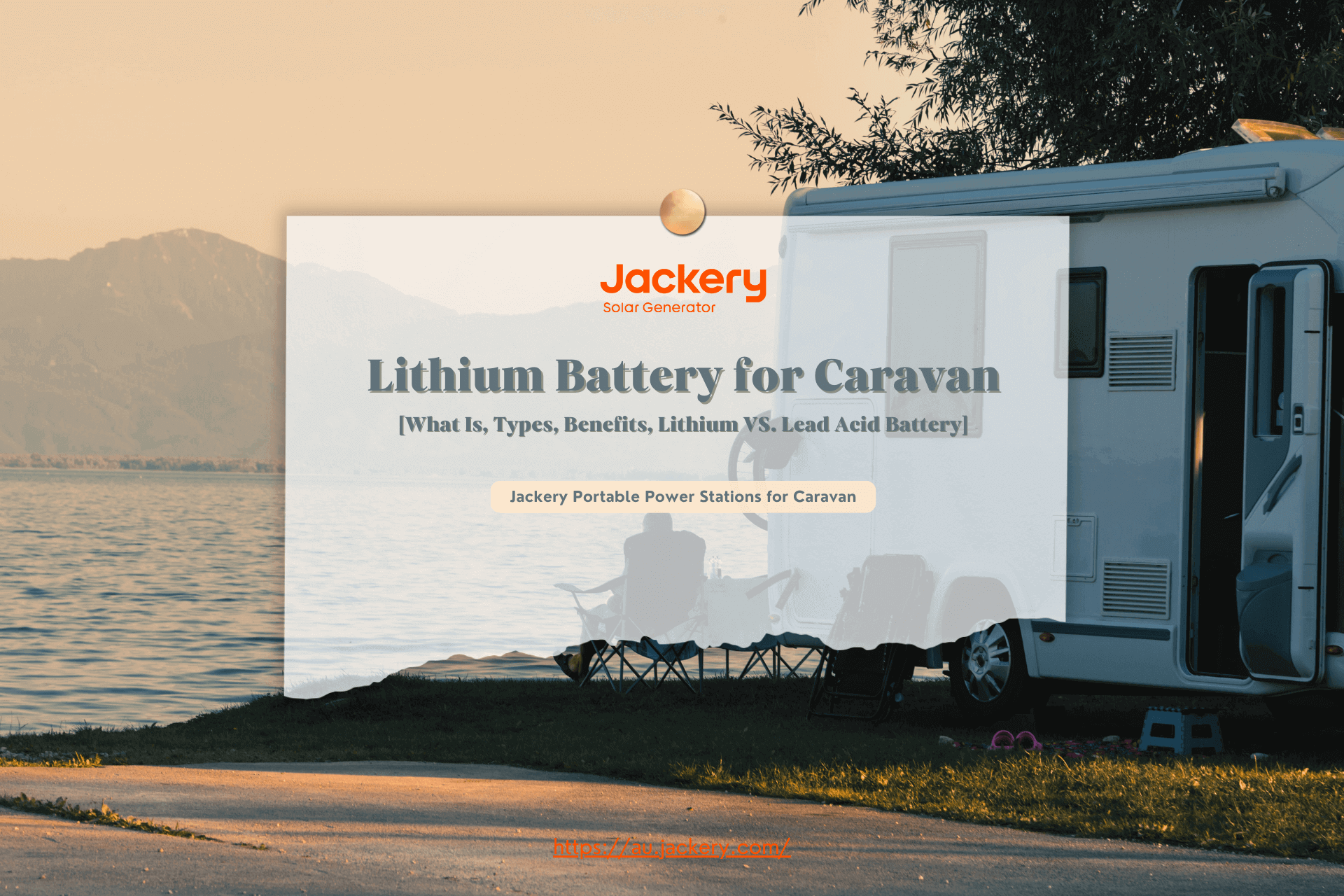Basic Components of Portable Generators: Solar Panel, Battery, and Inverter
1. The Basic Components
Portable generators provide wonderful convenience, specifically in conditions in which there may be no or inadequate mains electricity, which includes tenting, caravans, or emergencies. The simple operating principle of these turbines is to transform sun strength into electric strength and allow various electronic gadgets to perform. Three principal components play a function in this conversion: solar panel, battery, and inverter.
Solar Panels: Solar panels are devices that convert daylight immediately into electric strength. This conversion system is known as the photovoltaic effect. Solar panels are products of semiconductor materials, which include silicon, and the photons of sunlight create an electric-powered current with the aid of releasing electrons on this cloth. Solar panels utilized in portable generators are typically lightweight and flexible, may be transported without problems, and can be established on distinctive surfaces.
Battery: A battery is a component that shops the electrical electricity produced by the solar panel. In this manner, the saved power may be used while there may be no daylight or when the want for energy increases. Rechargeable batteries and lithium-ion or lithium iron phosphate (LiFePO4) are typically used in transportable turbines. LiFePO4 batteries stand out due to their excessive electricity density, extended lifestyles, and rapid charging features.
Inverter: An inverter is a digital circuit that converts direct contemporary (DC) electricity into alternating current (AC) energy. The electrical strength produced by solar panels is directly modern, while the power we use in our houses is alternating in the present day. Thanks to the inverter, the electrical power acquired from the transportable generator can be used in many distinct devices, including diverse camping equipment, mobile devices, and lighting gadgets.
2. How Solar Power Storage Works to Power Caravans
Typically, solar battery storage stations work like this:
· Sunlight is captured through solar panels.
· Direct current (DC) is converted into electricity.
· The energy is stored in a battery.
· The stored DC power is converted into alternating current (AC).
Production stage: The photovoltaic cells on your solar panels acquire sunlight and convert it into direct direct current (DC) electricity. Your system’s inverter then takes this direct modern electricity produced using the panels and converts it into alternating current (AC). Alternating contemporary energy is a widespread form of energy for electric devices.
Storage stage: After your inverter converts the power to alternating contemporary, that energy will flow through the relaxation of your property. This power then powers your private home’s appliances. Any excess, unused power you will generate will be sent to the solar battery for storage. The energy might be sent to the grid if you don't have solar battery storage or your solar battery is fully charged.
Key Benefits of Solar Power Storage in Caravans
Solar battery storage offers numerous awesome benefits for caravanners, especially those trying to embrace off-grid tours. From strength independence to fee savings, it’s a dependable and sustainable alternative that enhances the overall tour experience. Here are the important thing blessings of the use of sun power storage in caravans:
1. Energy Independence
One of the most substantial benefits of solar energy storage is the freedom it offers. With a well-established system, you’re not depending on campsite hookups or nearby energy grids. This independence allows you to journey to far-flung locations and now have to get entry to reliable electricity.
2. Cost-Effective
While the initial funding in solar battery storage may appear excessive, it results in lengthy-term savings. You’ll significantly reduce or do away with the want for campsite strength costs or gasoline expenses for generators.
3. Eco-Friendly
Solar electricity is a clean, renewable electricity supply that doesn’t produce emissions. By the use of solar battery storage, you lessen your carbon footprint and make a contribution to a greater sustainable environment.
4. Quiet Operation
Unlike traditional mills, which can be noisy and disruptive, solar battery storage systems operate silently. This permits you to experience the peaceful environment of nature without the consistent hum of machinery, enhancing the enjoyment of your off-grid.
5. Enhanced Off-Grid Capabilities
Solar battery storage substantially improves your caravan’s off-grid talents. Whether you’re camping in the wasteland or parked at a faraway beach, you’ll have a non-stop electricity supply that helps your home equipment, lighting, and gadgets, making your stay extra cushy.
6. Versatility and Scalability
Solar battery storage systems are especially versatile and scalable. Whether you need electricity for primary appliances or more energy-disturbing systems, the setup may be customized to your desires. You can, without enlarging the machine, include greater batteries or sun panels, ensuring it grows along with your strength necessities over time.

Types of Solar Batteries Suitable for Caravans
The batteries used in solar electricity systems are very important in terms of the efficiency and lifestyles of the machine. The two most unusual sorts of batteries are LiFePO4 (Lithium Iron Phosphate) and Li-ion (Lithium Ion) batteries. Both varieties of batteries have their personal blessings and disadvantages.
1. Types of Solar Batteries
LiFePO4: LiFePO4 or Lithium Iron Phosphate batteries are rechargeable, long-lasting batteries or cells that use lithium-ion technology. LiFePO4 batteries are tremendously green, meaning they keep and use electricity more correctly, decreasing electricity loss during charging and discharging. LiFePO4 batteries are less vulnerable to deep discharge harm, permitting you to use a larger portion of their potential without drastically affecting battery health.
Li-ion: Li-ion batteries are lighter and more compact than LiFePO4, making them best for caravans where area and weight are important elements. While their lifespan is usually shorter (around 5-7 years), they are more inexpensive to start with and nevertheless offer desirable performance. Li-ion batteries are also widely available and have been proven in various programs, from electronics to motors.
2. LiFePO4 vs. Li-ion Batteries for Caravans: A Comparison
When choosing solar battery storage for your caravan, the choice between LiFePO4 and Li-ion batteries regularly arises. LiFePO4 batteries are acknowledged for his or her sturdiness, durability, and safety, making them a popular desire for off-grid programs.
|
Feature |
LiFePO4 |
Li-ion |
|
Lifespan |
10+ years |
5-7 years |
|
Safety |
Excellent |
Good |
|
Efficiency |
High |
Good |
|
Cost |
Higher upfront |
Lower upfront |
|
Weight |
Heavier |
Lighter |
|
Size |
Larger |
Smaller |
Tips for Choosing the Right Solar Power Storage System
For caravaners, the duration of the experience and the times spent in campsites determine the list of things that need to be prepared while planning a trip. Solar battery storage should really be at the pinnacle of the listing as an asset. If you are looking to buy a power solar generator for your caravan trips, check the simple requirements listed beneath for the fine preference.
1. Key factors to consider when selecting a solar power storage system for a caravan:
a. Storage Capacity and Power Output
The first thing to consider is the solar power storage capability. This will decide how much power the machine can supply and how long it is able to power your caravan’s appliances and electronics. A large capability is good in case you plan to live off-grid for prolonged intervals, while a smaller gadget would possibly suffice for shorter journeys. Additionally, the energy output of the gadget ought to be able to cope with the whole wattage of all of the devices and electric equipment you propose to apply.
b. Portability and Ease of Installation
Caravanners often pass among locations, so portability is a critical element when selecting sun battery storage. Opt for a device that is lightweight and clean to transport, particularly in case you frequently relocate. Installation needs to additionally be truthful, allowing you to install the machine quickly with no need for superior technical information.
c. Durability and Weather Resistance
Since your solar battery storage will be exposed to outdoor factors, it’s important to pick out one that is durable and weather-resistant. Look for systems with a rugged build and protection against water, dust, and severe temperatures. Durability is specifically essential for lengthy journeys where the gadget might come upon harsh climate conditions. A sturdy, nicely protected battery ensures dependable overall performance through the years.
d. Compatibility with Existing Solar Panels
Before buying a solar battery storage machine, check that it is well-matched along with your present solar panels. Mismatched systems can cause inefficiencies and reduced performance. It’s critical to make certain that the battery storage system works seamlessly with the panels you already have, permitting you to maximize electricity collection and storage.
2. Assessing Personal Power Needs
Like residential battery storage, the RV lifestyle also requires some basic power requirements, and your portable power station should be able to afford it. Start by listing all the appliances and devices you intend to run on your caravan. Estimate their electricity utilization and the time you count on applying them every day.
For instance, if you’re using excessive-demand appliances like fridges, air conditioners, or leisure systems, you may need a more powerful portable battery pack to handle the stepped-forward load. On the other hand, if your wishes are more fundamental, encompassing charging phones and strolling lights, a smaller device will suffice. By comparing your power requirements, you may select a gadget that suits your way of life and guarantees you have sufficient electricity while you need it.

Jackery Solar Generator for Caravans
Jackery Solar Generator 2000 Plus
The Jackery solar generator 2000 plus is a powerhouse for caravans that call for excessive energy output. With its huge 2042Wh capacity, this model can effortlessly handle big home equipment like refrigerators, air conditioners, or even electric-powered cooking gadgets. Its advanced LiFePO4 battery era guarantees dependable, long-lasting energy storage, making it perfect for prolonged off-grid adventures. Plus, its capacity to recharge through solar panels is a way you could keep your electricity supply topped up without relying on outside resources. The Jackery Solar Generator 2000 Plus isn’t only powerful but also transportable and rugged, making it easy to transport and use in any environment.
Jackery Solar Generator 1000 Plus
If you’re a caravanner searching for an extra compact and portable power solution, the Jackery solar generator 1000 plus is a first-rate choice. With an ability of 1264Wh and a 2000W energy output (peaking at 4000W), it may without problems energy essential devices along with lighting, cell gadgets, and small fridges. Its lightweight design makes it clean to carry and set up, providing a flexible solar battery storage solution for each short and lengthy trip.
Both models offer fast-charging capabilities, quiet operation, and compatibility with Jackery’s solar panels, ensuring you have an uninterrupted power supply wherever your caravan travels. Both models are suitable for RV and outdoor use and can also be used safely as home battery storage.
|
Feature |
Jackery Solar Generator 1000 Plus |
Jackery Solar Generator 2000 Plus |
|
Battery Capacity |
1264Wh |
2042Wh |
|
Power Output (Continuous) |
2000W (4000W peak) |
3000W (6000W peak) |
|
Battery Expansion |
Expandable with up to 3 additional battery packs for a total of 5kWh |
Expandable with up to 5 additional battery packs for a total of 12kWh |
|
Inverter |
Pure Sine Wave |
Pure Sine Wave |
|
Recharge Time (via Solar) |
4.5 hours (with 4 x Jackery SolarSaga 100W solar panels) |
6 hours (with 6 x Jackery SolarSaga 100W solar panels) |
|
AC Output Ports |
2x 230V AC outlets |
3x 230V AC outlets |
|
USB Ports |
2x USB-C (100W), 2x USB-A (18W Max) |
2x USB-C (100W), 2x USB-A (Quick Charge 3.0) |
|
DC Car Port |
1x 12V/10A carport |
1x 12V/10A carport |
|
Weight |
14.5 kg |
27.9 kg |
|
Dimensions |
35.6 x 26 x 28.3 cm |
47.3 x 35.94 x 37.36 cm |
|
Expandable Battery Packs |
Yes (up to 3 additional packs) |
Yes (up to 5 additional packs) |
|
Battery Type |
LiFePO4 battery |
LiFePO4 battery |
|
Solar Input |
100W (max) |
100W (max) |
|
Warranty |
5 years |
5 years |
|
Ideal For |
Basic appliances and devices such as phones, lights, and small fridges |
Larger appliances such as refrigerators, air conditioners, and more demanding equipment |
Conclusion
Solar battery storage is crucial for anybody trying to journey off-grid in a caravan, enabling adventurers to discover far-flung locations whilst taking part in contemporary conveniences. Jackery offers top-notch solar generators designed to meet the particular needs of caravanners. Whether considering the Jackery Solar Generator 2000 plus or the Jackery Solar Generator 1000 plus, customers can rely upon these products for dependable and efficient strength throughout their adventure. For extra records, visit Jackery’s internet site to find out how our answers to sustainable electricity can help you achieve your next adventure.

